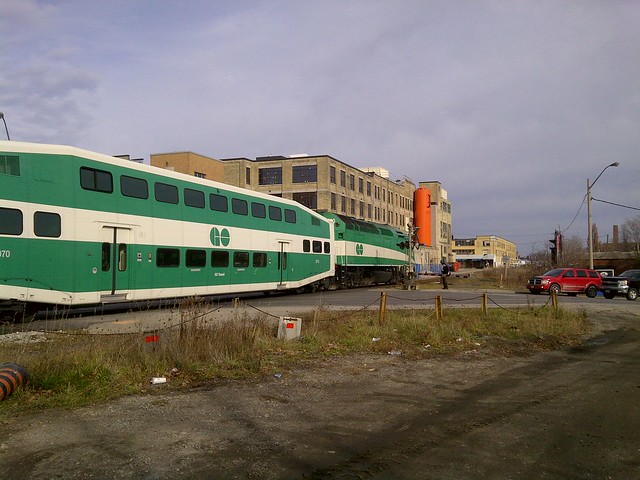More LRT Meetings, and Why It’s Important To Go
It’s that time again: the Rapid Transit team has sent out notices of the Transit Project Assessment meetings to be held on January 24, 25, and 26:
24th Jan, 3-8pm: First United Church, King and William, Waterloo
25th Jan, 3-8pm: Region of Waterloo Headquarters, 150 Frederick, Kitchener
26th Jan, 3-8pm: United Kingdom Club, 35 International Village Drive, Cambridge
Speculation aside about whether or not there will be cookies, these meetings are important because they discuss what impacts LRT construction/operation will have on the environment. With parts of the LRT route being near floodplains, being next to or on top of the Laurel Creek tunnel through Uptown Waterloo, and running through some parkland, it will be very important for the Region to explain to the public how environmental impacts of the project are to be mitigated and how an incident of provincial significance can be avoided (the Laurel Creek runs into the Grand River, and that’s where Brantford gets its drinking water from), and how any contract for construction and/or operation will ensure high quality transport for the citizens of Waterloo Region while taking the health and well-being of our neighbours downstream into account.
So with so much on the line, an informed public, and the feedback it provides, are very important here. Please take an hour out of your busy schedule to attend one of these information meetings above, and continue to be an active participant in the affairs of your local government.

